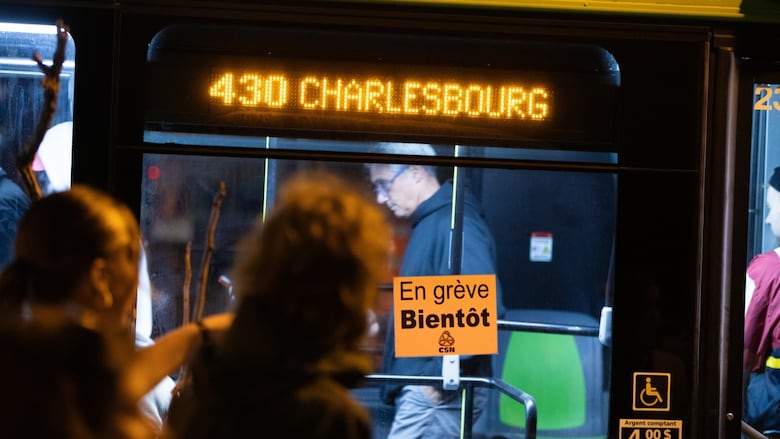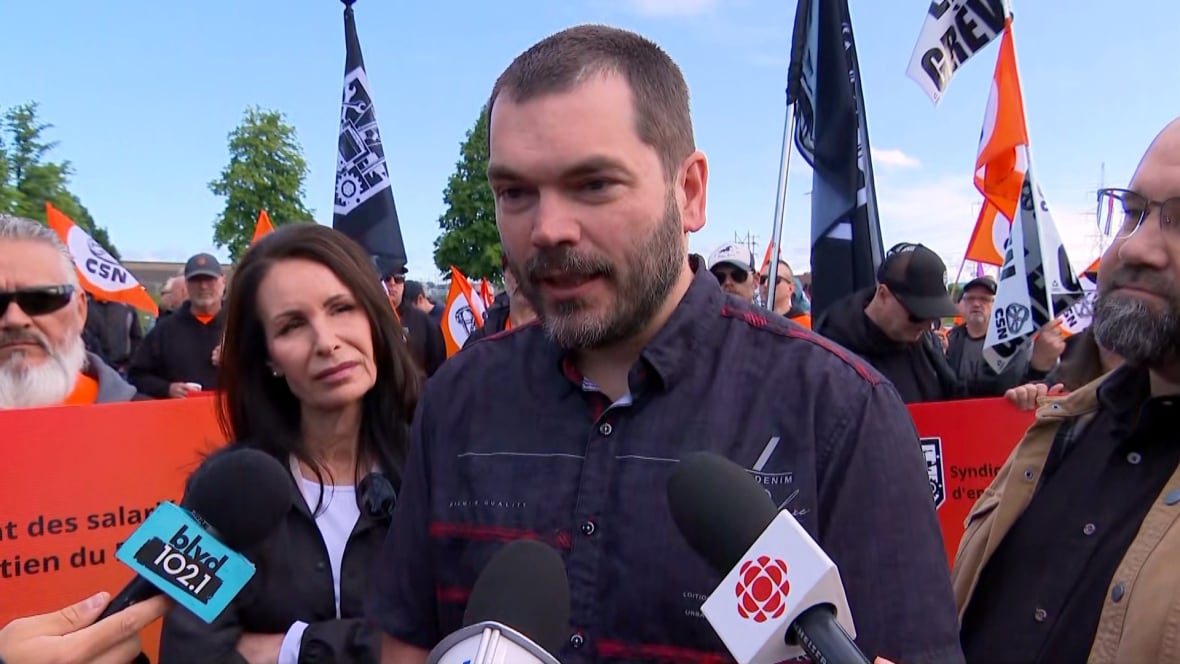Transit strike grips Quebec City during popular music festival
No bus, ferry service for more than a week starting Friday

Ferry and bus maintenance workers in Quebec City walked off the job Friday just as the city's most popular music festival gets underway.
Festival d'été de Québec (FEQ), which began Thursday, draws tens of thousands of spectators for shows in the downtown core. This year, it will host headliners including Rod Stewart, Avril Lavigne, Benson Boon and Shania Twain.
In 2024, 300,000 trips were made using the Réseau de transport de la capitale (RTC) during the 11-day festival, according to the transit network.
On Thursday, the union representing over 350 bus maintenance workers with the RTC announced it would be going ahead with a strike starting Friday, halting bus service in the capital region until July 14. Ferry workers with the Société des traversiers du Québec (STQ) also began striking on Friday for nine days.
Quebec City Mayor Bruno Marchand said the workers are using the city's music festival as leverage in the negotiations. Two years ago, a strike was averted at the last minute, just before the start of the event.
"We're not sacrificing the FEQ. We want this to be resolved, resolved as quickly as possible, but not at any price," said Marchand.
Negotiations broke down Thursday afternoon, said Nicolas Louazel, president of the union for maintenance workers, the Syndicat des salariés d'entretien du RTC.
"We are a long way from an agreement in principle," he said. No negotiation date has been set by the mediator to continue discussions with their employer, he said.

According to the RTC, employees are demanding pay increases amounting to 30 per cent over five years.
Claude Villeneuve, the leader of the opposition at city hall, says the wage demands are unrealistic and that it is obvious that the maintenance workers are specifically targeting the FEQ as a negotiating strategy.
"I think it's a shame that the public is being held hostage like this," he said.
He questioned the ability of RTC's general manager Nicolas Girard to bring these negotiations to an end.
Request to establish minimum service rejected
In 2024, Quebec's labour tribunal concluded for the second time that the RTC is not an essential service. The judgment from November 2024 said there was no danger for the health and safety of the population in the absence of public transport.
But last month, Girard wrote a letter to the president of the union for RTC maintenance employees reiterating a request to establish a minimum service offer in the event of a strike.
He cited Montreal as an example, saying an agreement was reached between the Société de transport de Montréal (STM) and the Montreal union for transport workers to ensure a level of minimal service in the event of a strike.
He wrote that a joint agreement in Quebec City is necessary to mitigate the effects of a complete service disruption.

"Our objective is not to call into question the right to strike, but to find a fair balance between the legitimate rights of workers and the fundamental needs of the population," read the letter.
"For several low-income residents, families, the elderly and people with reduced mobility, public transport is the only way to get to work, the hospital, the pharmacy."
The union rejected this request, according to RTC president Maude Mercier Larouche.
What's considered essential?
Public transport is generally not deemed essential, despite the attempts to characterize it as such, says Barry Eidlin, associate professor of sociology at McGill University who specializes in labour movements and policy.
"This is a constant effort to expand the notion of essential workers in an effort to circumvent the collective bargaining process by undermining workers' ability to strike," he said.
He says there's a tendency to force people back to work as a "knee-jerk reaction."
But essential work, and what is deemed as such, can differ significantly based on the context, he says. Ultimately, when workers go on strike, it's meant to be a reminder of the employees' essential role.
"If employers are truly concerned about the well-being of their clients and customers, they also have the ability to negotiate and reach agreement with workers," said Eidlin.
"[A strike] is the end result of months, and often years, of fruitless bargaining."
With files from Radio-Canada's Jonathan Lavoie and Louise Boisvert

